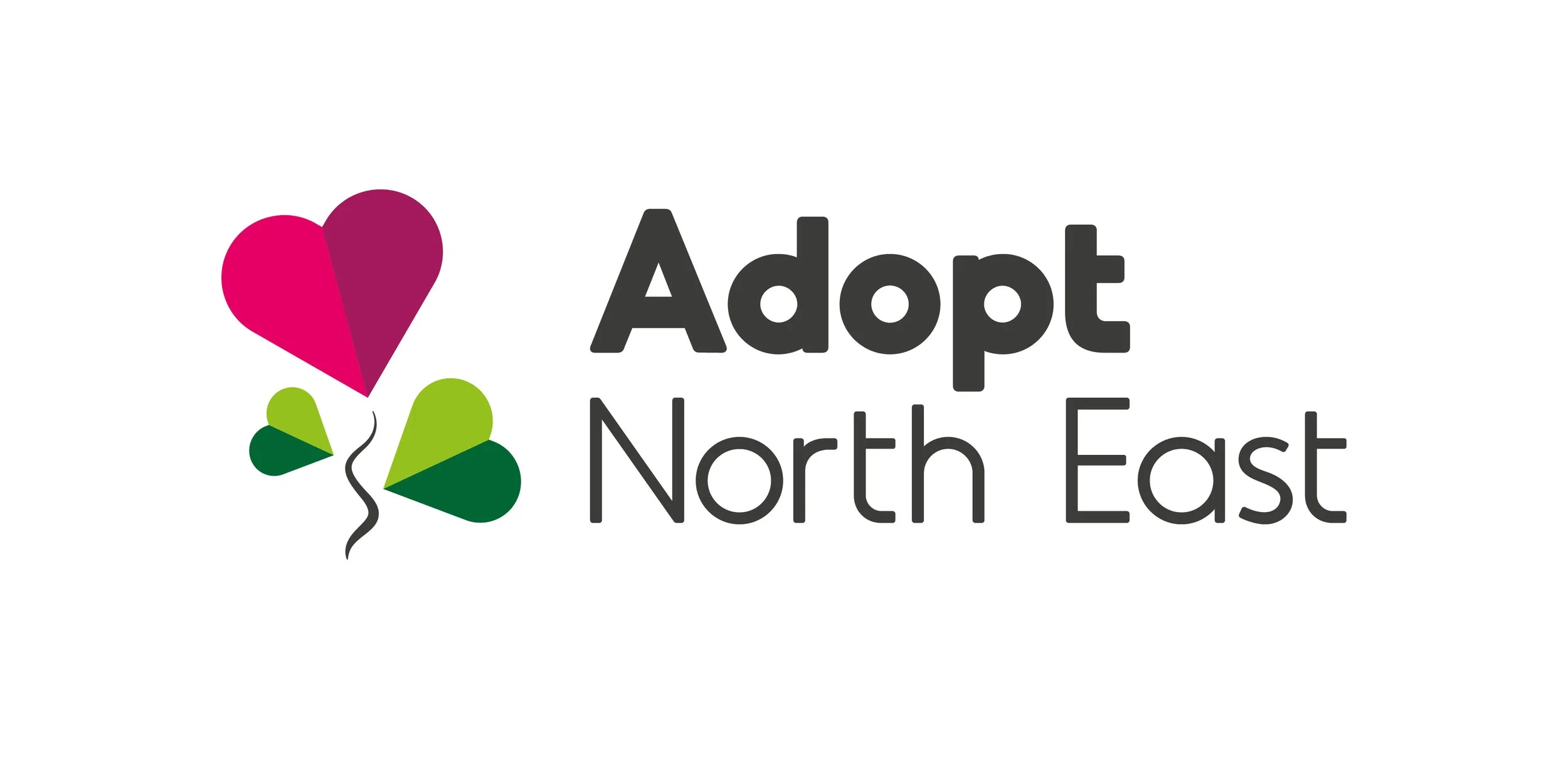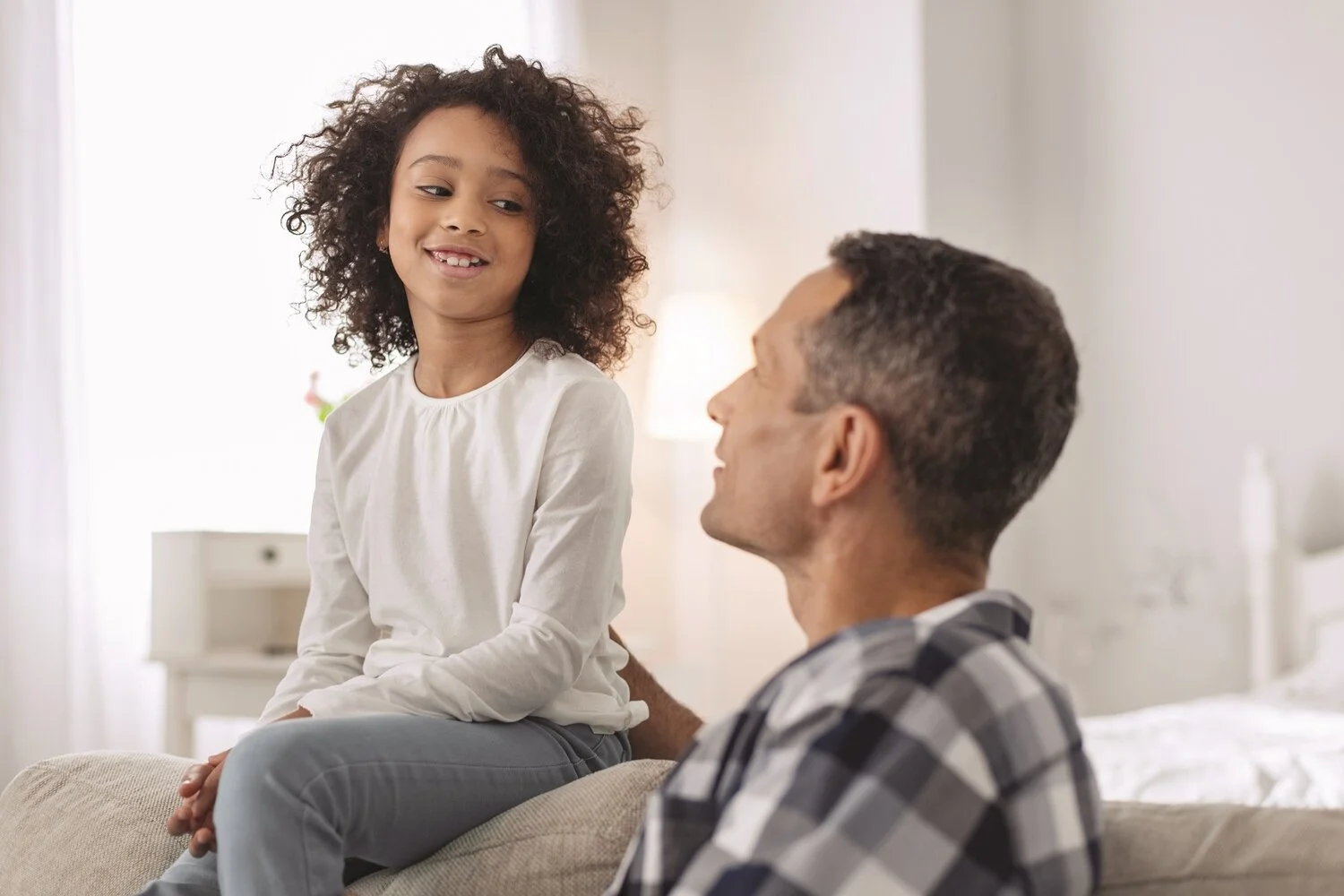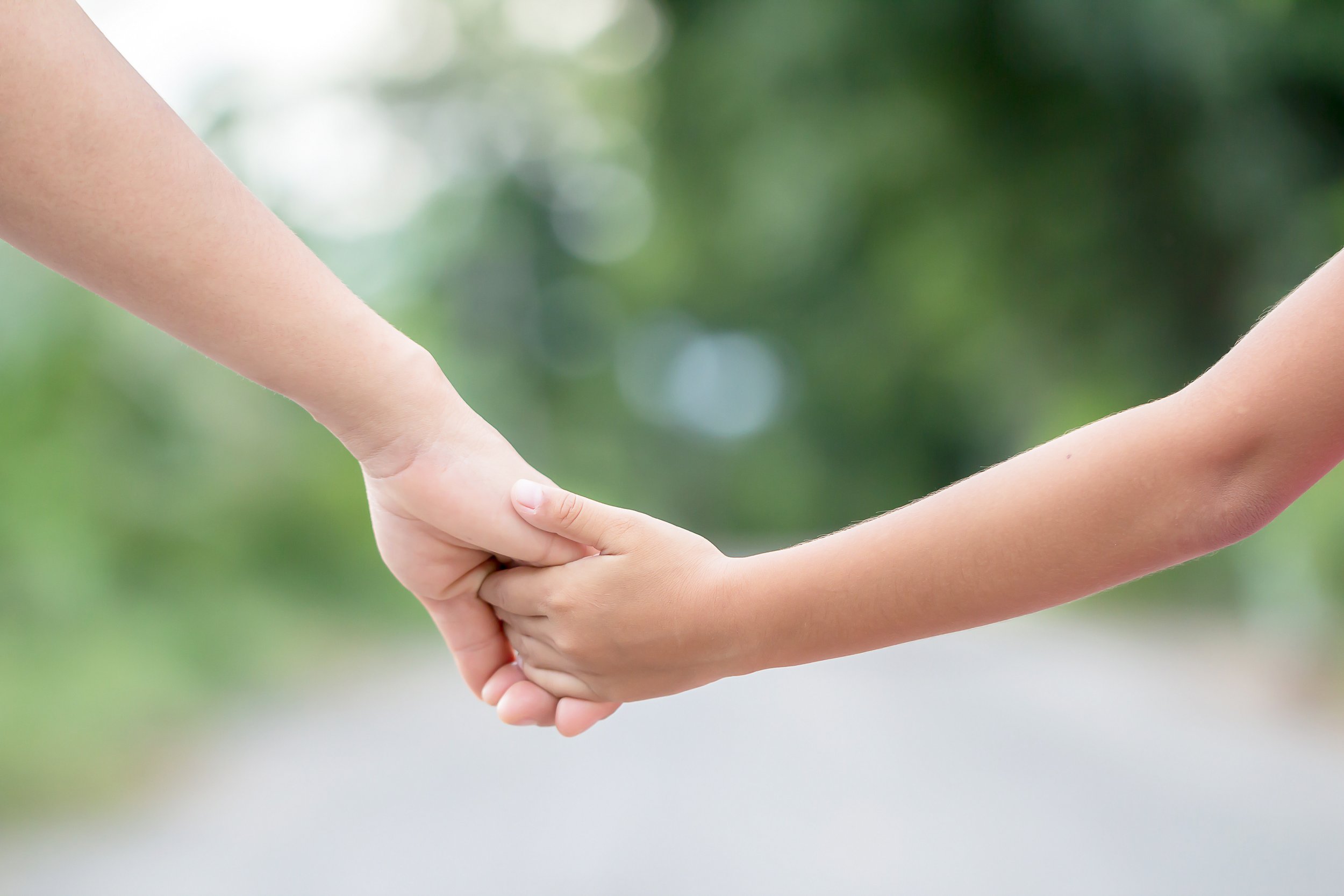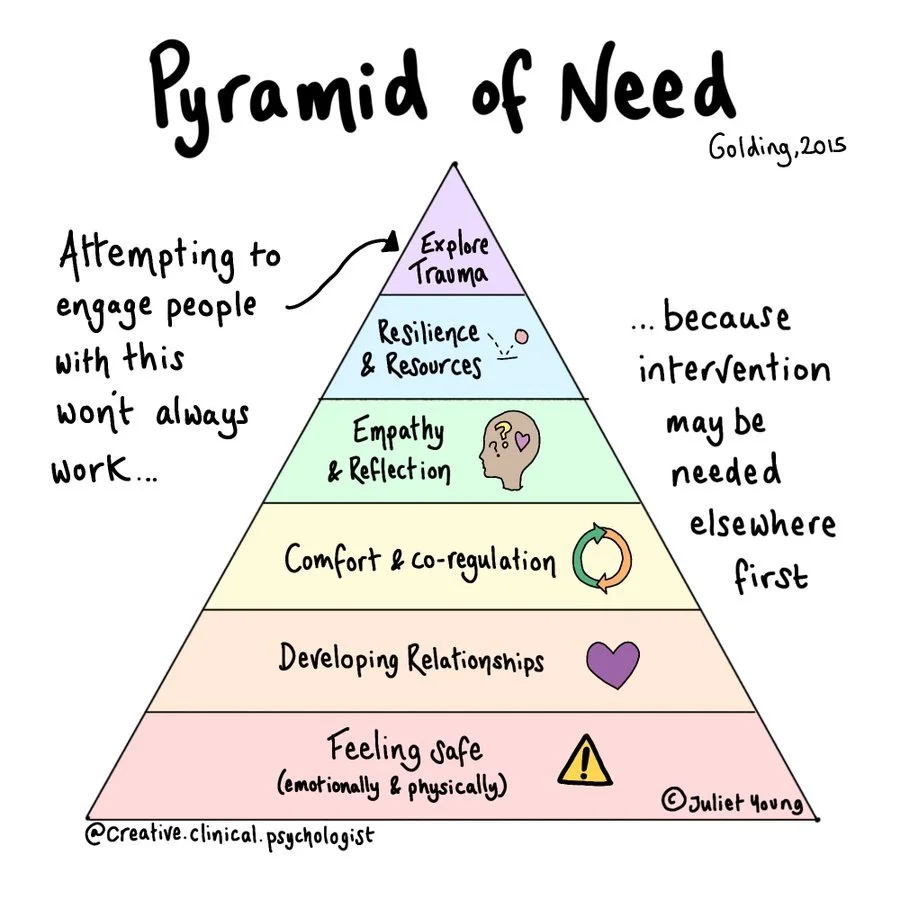“Heard, held, helped and hopeful”
A guide to the support available for adopted children, young people and their families
Frequently Asked Questions
-
Adoption is a lifelong process that is rewarding; however, at times it can also be challenging. Children who have experienced a difficult and unsettled start to life benefit from extra, tailored support as they grow and develop. Your Regional Adoption Agency can support you to explore what support might look like for you and your family.
-
The Regional Adoption Agency within Local Authority who placed a child with their adoptive family have a statutory responsibility to assess adoption support needs for 3 years from the date of the granting of an Adoption Order. After 3 years, it becomes the responsibility of the Regional Adoption Agency within the Local Authority where the family are resident (if different).
-
Children placed with their adoptive families, pre-Adoption Order. Children with Adoption Orders until the age of 21 years, or 25 years if they have an Education Health Care Plan (EHCP). Adults over 18 years old wishing to access their Adoption Records. Birth Families members impacted by Adoption.
For Adoptive Parents
-
Adopt North East offer a check in service at 6 months and 12 months post adoption order. Following this, families are able to contact Adopt North East to explore support at any time up until a 21 years, or 25 years if the individual has an Education Health Care Plan.
-
A range of services is available within Adopt North East, including therapeutic support groups, peer support and specialist therapeutic intervention. The first step is contacting our Post Adoption Support Duty Team on 0191 6435000 to discuss your needs.
-
Adopt North East is responsible for completing Assessments of Adoption Support Needs to best understand the needs of your child and you as a family and if specialist commissioned support would be beneficial. The Adoption Support and Special Guardianship Fund provides up to £3000 per child annually for therapeutic support and/or specialist assessment.
-
No, neurodevelopmental assessments are not in scope using the ASGSF. CAMHS/CYPS in your local area are responsible for this assessment and on-going care. You can liaise with your GP in relation to this.
-
Adopted children are entitled to priority school access and Pupil Premium funding to help with their education needs. You can speak with your child's school about this and request support via your Local Authorities Virtual School.
-
Contact arrangements are decided in the child's best interest and understood wishes. Adopt North East and their Family Connections Team can help manage and support these arrangements.
-
Adoptive parents have the same entitlement as other parents to claim benefits, and Adoption Allowance is available to be explored as a means tested financial payment. Exploration into Adoption Allowance is the responsibility of the Placing Local Authority if financial support was discussed at the point of placement, and the responsibility of the Local Authority in which you reside if a new request. Adoption Allowance is subject to annual financial review.
For Adopted People
-
In England, adults have the legal right to access their birth records at age 18. Our Family Connections team can support you to access your adoption records. The Adoption Contact Register also helps adopted people and birth relatives if both parties register.
-
Any formal court-ordered contact ends when you turn 18. Our Post Adoption Support service and Family Connections service can offer advice about any next steps if you wish to explore on-going contact with birth family.
A guide to adoption support
Adopt North East know that navigating the support landscape available for adopted children and young people is not always easy or straightforward. We acknowledge that this can be frustrating. It is the case that there is no single organisation which provides all the support that adopted children, young people and their families may need. This is because the needs of adopted children, young people and their families are diverse and as a result, services established to meet these needs have to be equally diverse. This guide seeks to explain some of the key support services that are available.
What is adoption support?
Parenting any child through to adulthood is an extraordinary journey. It can be rewarding, frustrating, exhilarating and exhausting – all in a single day. As children grow, they change and develop and this means that parents need to adapt and adjust. It can mean that what worked previously might no longer work and what didn’t work, just might. And of course, for all parents, there is plenty of advice out there – sometimes helpful, sometimes less so – as well as that nagging sense that somewhere, someone else is doing it better. Parenting, in short, can be tough. If parenting is tough for all parents, for a parent of an adopted child it can be especially so. This is because an adopted child will have experienced the trauma of separation from their birth family and may have been exposed to substances as an unborn child or harmful behaviours in their early years. Furthermore, some adopted children will also have experienced a number of different carers, homes, communities and even parenting styles prior to adoption. For these reasons, adopted children need more than just good parenting – they need trauma-informed parenting. This is the ambition at the very heart of adoption support - equipping adoptive parents with the skills necessary to parent in a way that meets the needs of a child resulting from their experiences prior to adoption.
Finally, some adopted children may also need specialist support to help them recover from the effects of trauma. As a result, adoption support also includes a range of therapies that have been shown to help.
Lastly, the proverb ‘It takes a village to raise a child’ helpfully emphasises the role of others – friends, family, neighbours, schools and clubs - in helping a family to thrive. This is a particularly important insight for the parents of adopted children – professional adoption support can only ever be a small part of the wider network of support needed to parent. Those with wide and diverse support are far more likely to navigate the parenting journey to adulthood successfully.
Adoption support at a glance
-
• General practice
• Education
• Child and Adolescent Mental Health Services
• Children’s Services
• Charities
-
• Advice, Guidance and Signposting
• Website Resources including CATCH
• Stay and Play Groups
• Adopted Young Persons Groups
• Peer Mentoring
• Foundations for Attachment
• Life Story Work
• Family Connections Service - Maintaining Relationships
-
• Non-Violence Resistance Parenting Training
• Theraplay
• Therapeutic Life Story Work
• Dyadic Development Pyshotherapy (or Practice) (DDP)
-
• Allocated Adoption Social Worker
• Specialist Assessment
• Specialist Complex Trauma Recover Therapies including:
• Filial Therapy
• Creative Therapy
• Eye Movement Desensitisation and Reprocessing Therapy (EMDR)
• Sensory Integration/Attachment Therapy
• Multi Systematic Therapy
• Play Therapy
• Psychotherapy
Universal Support
Education
Designated teacher - every school has a designated teacher responsible for looked after and previously looked after children. This guide outlines their role: www.gov.uk/government/publications/designated-teacher-for-looked-after-children If you are concerned about your child’s education speak with their teacher and the designated teacher for the school.
Education psychologists – educational psychology is concerned with children and young people in education and early years settings. Educational psychologists tackle challenges such as learning difficulties, social and emotional problems, issues around disability as well as more complex developmental disorders.
SEND education team and SENDIASS – information, advice and support service providing impartial and confidential information, advice and support for parents/carers, children and young people around issues relating to Special Educational Needs and Disabilities.
Gateshead
Telephone: (0191) 478 4667
Web: www.barnardossendiass.org.uk/gateshead-sendiass
Newcastle
Telephone: (0191) 211 6255
Web: www.newcastlesendiass.co.uk
North Tyneside
Telephone: (0191) 643 8317
Web: www.sendiassnorthtyneside.org.uk
Northumberland
Telephone: (01670) 623 555
Web: www.northumberlandiass.org.uk/index.php
South Tyneside
Telephone: (0191) 424 6345
Pupil premium plus - the pupil premium provides extra funding to state-funded schools to help their staff give extra support to disadvantaged pupils including, but not restricted to, those adopted from care.
Virtual school – The virtual school heads promote the educational achievement of the children who are looked after by the local authority they work for. They also manage pupil premium plus funding, which is an extra payment that schools receive for each looked after child, and previously looked after child, on their roll.
• Northumberland: 01670 622787
• North Tyneside: 0191 6438366
• Newcastle: 0191 2773616
• Gateshead: 0191 4338732
• South Tyneside: 0191 4273490
Nursery placements – early years pupil premium (EYPP) is additional funding for early years pre-school settings to improve the education they provide for disadvantaged two and four year olds including, but not restricted to, those adopted from care.
Children’s services
Early help and social care - support children around school attendance, emotional and wellbeing needs, or at risk of being looked after.
• Northumberland One Call: 01670 536400
• North Tyneside Front Door: 0345 2000109
• Newcastle Initial Response Service: 0191 2772500
• Gateshead Front Door: 0191 4332653
• South Tyneside Initial Contact: 0191 4245010
If you are concerned about a child’s welfare or concerned as a parent that you feel unable to care for your child, children’s social care can offer advice and support.
Please note if you think your child is in danger or at risk of immediate harm, call the police on 999.
NHS Health Services
GP - always consult your GP first if you are concerned about your child’s development, health, mental health, and wellbeing.
CAMHS/CYPS – child and adolescent mental health services are the NHS services that assess and treat young people with emotional, behavioural or mental health difficulties. CAMHS/CYPS is the agency responsible for undertaking neurodiversity assessments, diagnosing and delivering ongoing support around neurodiversity need.
CAMHS support is available if an adopted child or young person is struggling with:
• Low mood
• Depression
• Severe anxiety
• Autism assessment service
• ADHD diagnosis and support
• Self-harm
• Eating disorders
• Conduct behaviour alongside other mental health difficulties
• Suicidal thoughts
• Tics and tourette’s
Cumbria, Northumberland, Tyne and Wear NHS Foundation Trust
www.cntw.nhs.uk/services/north-cumbria-community-children-and-young-peoplesservices
Telephone: 0191 246 6800
If concerns about the mental health of a child or young person escalate, please call NHS 111. If it is an emergency, dial 999 or immediately visit accident and emergency (A&E).
Other resources
In recognition of the range and diversity of resources that are available to support adopters, Adopt North East curates resources in the following ways. Recommended resources are those that Adopt North East can recommend based on our knowledge or experience of the resource and its contribution to effectively supporting adopted children and their families. Other resources are those not known or less well known to us but which adopters might, nevertheless, find of helpand support. We hope, in this way, that Adopt North East can act as a credible and helpful signpost to what support is out there that might help make a difference.
Recommended resources
National Health Service - Resources for parents and carers
https://www.cntw.nhs.uk/resource-library/carers-resources/
PAC – UK - Therapy, advice, support, counselling and training for all those affected by adoption and permanency.
National Organisation for FASD - information and resources for those with or caring for those with Foetal Alcohol Spectrum Disorder
Safeline – a charity that offers a wide range of support services for children and family members that have experienced sexual abuse.
Adoption UK - offer a wide range of service and support for adopters in the UK with regular community groups which meet locally as well as online.
National Association of Therapeutic Parents - a supportive community dedicated to empowering parents of children who have experienced adverse childhood experiences.
https://www.coect.co.uk/about-us
New Family Social - a charity that lead making adoption more accessible for LGBTQ+ people. They offer a range of services including peer support groups, family events and training
https://newfamilysocial.org.uk
UK Trauma Council (UKTC) - evidence-based resources to improve professionals and carers’ understanding of the nature and impact of trauma. They aim to better equip all those supporting children and young people exposed to trauma.
We Are Family – is a peer support community by adopters for adopters.
https://wearefamilyadoption.org.uk
Childline - a free helpline for children and young people.
Beacon House – a online resource offering guidance and inforamtion about attachment and trauma focused therapies and thinking.
FASD Network - an organisation that specialises in providing information, support and training on FASD
The Potato Group (Parents of Traumatised Adopted Teens Organisation) – a peer based service for families with adopted teenagers, to help them access support, information, resources and friendship.
Other resources
Solo adopters social, support and information (SASSI) – offering solo adopters events and activities for their families, advice, and guidance from lived experience and the opportunity to widen their support network.
Contact: team@sassi.org.uk
Core Support
Advice, guidance and signposting
Adopt North East has a dedicated adoption support front door team offering direct contact with a qualified social worker. It might be that you need to chat about something informally or request an assessment of adoption support need.
Adopt North East website and CATCH online resource
The Adopt North East website has a dedicated section with resources to support adopters
Additionally, CATCH is online resource commissioned by Adopt North East which offers a large range of information and support to adoptive parents. CATCH provides eLearning, webinars, interviews and case studies exploring key issues for parents supporting children who have experienced trauma. This is available to adoptive parents.
Stay and play
Adopt North East runs a fortnightly, free to use baby and toddler (pre-school) group for adoptive parents. This group provides an excellent informal support for adopters to meet with other adoptive parents and share experiences and offer support to one another, facilitated by a member of Adopt North East.
Young persons group
Adopt North East run a fortnightly young people’s group for those age 11 to 18. The group offers a space for adopted young people to get together, socialise and have some fun. The group also supports young people to contribute towards service development of Adopt North East and have an active voice in all that Adopt North East does.
Peer mentoring
Adopt North East provides a peer mentoring scheme in which experienced adopters are on hand to help other adoptive parents with a variety of issues.
Life story workshops
Adopt North East have practitioners experienced and trained in Life Story Work who can offer advice and guidance to parents about how to support adopted young people to understand their history and identity.
Foundations for attachment therapeutic group
Foundations for attachment is a therapeutic program based on the Foundations for Attachment Training developed by Dr Kim Golding, approved, and endorsed by the Dyadic Developmental Psychotherapy Institute (DDPI).
The program consists of three modules which are run over six sessions. Each session will last approximately three hours and parents will be provided with training resources to support their learning and reflection. This group runs regularly throughout the year.
Birth Family Support
Research suggests that it is important for an adopted child's wellbeing and sense of identity to know about where they came from and about their heritage. Maintaining some form of relationship with an adopted child's birth relatives can support this where it is safe to do so. Having a plan that is in line with a child’s needs and one that can change over time is the best way of helping a child to understand themselves better and can help them to develop a healthier sense of self as they grow up. For birth family members it offers reassurance that the child is happy and safe. For adoptive parents it offers opportunities to develop their child’s story and be aware of any changes within the birth family circumstances.
Maintaining relationships
Maintaining relationships may take different forms, including indirect methods such as letters and emails and direct methods such as virtual meetings on-line or face-to-face meetings in the community. Letterbox Contact is perhaps the most well-known and prevalent form of contact. It can help build a level of trust and familiarity between adopters and birth family. The Family Connections service is available to support Letterbox Contact through advice and guidance about practical details as well as offering emotional support to both adoptive and birth family members involved in Letterbox.
The Family Connections service can:
Explain the different types of contact arrangements available to maintain relationships
Support all parties to a contact arrangement to understand their specific responsibilities – helping to manage confidentiality, expectations, reduce any anxieties and ensure that the right practical arrangements are in plProvide advice and guidance around when it is and is not appropriate to make changes to a contact arrangement in the best interests of a child – for example changes linked to a child’s understanding and maturity
Support families to maintain and sustain contact arrangements, take a break from them or re-establish them after they have been paused
Promote the safety of children at all times through providing advice, guidance and expert review of arrangements
Mediate disagreements between parties and resolve any challenges that impact the successful maintenance of relationships
Access to birth records
Adopted adults often seek access to their records in the UK to explore their identity, connect with birth relatives, and understand the circumstances surrounding their adoption. This can help them fill gaps in their life story, gain a more complete sense of self, and address feelings of loss or disconnect that may arise from adoption.
Family Connections can offer information, advice, and direct support -
Provide Information and advice about how an adopted person can obtain a copy of their original birth certificate from the general register office
Help an adopted person to obtain and understand information from adoption records so that they can have a better understanding about the circumstances of their adoption and their origins
Signposting to other organisations, intermediary services and resources that may be of help
Provide emotional support following the sharing of adoption records as appropriateHow to access the Family Connections service:
How to access the Family Connections service:
You can contact the team Monday to Friday 10-4pm
Email: familyconnections@adoptne.org.uk
Telephone Number: 0191 643 5099
Targeted offer
Post adoption support front door team
Our post adoption front door team are available to take initial enquiries from adoptive families who feel they would benefit from advice, guidance and support. The social workers within this team aim to respond to your initial contact within two to five working days to take further details and consider the appropriate route of support. This may involve providing guidance from a trauma informed perspective on a specific matter, signposting to a more appropriate service, referring to the post adoption support team for an in-depth assessment or arranging a virtual short assessment of support needs to further explore your families support needs. These short assessments are scheduled promptly following your contact to prevent delay in accessing appropriate support. If appropriate following this assessment, the team can apply to the adoption and special guardianship support fund to commission specialist therapeutic support from our range of approved providers or therapeutic group-based support. The post adoption front door team also undertake reviews of therapeutic support for some families who do not require an allocated social worker to ensure therapeutic support is reviewed regularly and continues to meet the needs of every family.
Non-violent resistance therapeutic group
Non-violent resistance – from hostility to harmony - is a group-based online course run over 12 sessions, including one to one sessional support. The NVR approach is an empowering, peaceful method for families to connect with children of any age and to reduce or eradicate challenging behaviour. Lasting change can happen in just a few months for those who diligently apply the principles. This group is run regularly throughout the year.
Theraplay
Theraplay is a child and family therapy for building and enhancing attachment. It is directive – activities are directed by the adults (at first by the therapist and then by the parent). The parent is always involved in the therapy and the aim is to tailor specific activities and play to regulate the child and strengthen the parent/child relationship.
Developmental dyadic practice and psychotherapy
DDP is based on and brings together attachment theory, what we understand about developmental trauma, the neurobiology of trauma, attachment and caregiving, intersubjectivity theory and child development. Troubled children may have had many changes in the people who look after them and find it hard to trust adults. They may believe that parents aren’t safe and can’t always be turned to for comfort and help. They may develop insecure attachments and try to stop their new parents from becoming emotionally close to them. This therapy and approach helps the children learn to trust. It is family-based and involves the child with his or her caregivers.
Therapeutic Life Story Work
This is a trauma-informed therapeutic approach developed to enable children to explore, question and understand the past events of their lives that may have left them feeling lost and with no sense of belonging. This can impact hugely on their well-being and make the child very vulnerable in their present and future. Therapeutic Life Story Work offers children opportunity to explore, question and understand past events of their life and give them a voice and safe space to express their emotions when making sense of past experiences and the relation it has to their current thoughts, feelings, and behaviours. It aims to secure their future through strengthening attachment with their parents/carers. It provides an opportunity to develop healthy sense of self and feeling of wellbeing through considering the past, present and future in an integrative way. This supports the child to develop their own narrative and support the family to develop a shared one.
Specialist Support
Post adoption support team
Our post adoption support team offers longer term specialist support to children and their families. Families will have an allocated social worker who will work to get to know them as a family, and the needs of their child through building an established supportive relationship. Social workers will support children and their families via home visits, 1:1 work with the child and young person, and meeting with parents. The post adoption support team undertake in-depth assessments of adoption support needs to explore need and establish if a specialist therapeutic intervention is appropriate. Adopt North East work with a variety of therapeutic providers on our approved provider list using the adoption support and special guardianship fund to commission this.
Your allocated social worker will be present to walk alongside you, review and set up therapeutic intervention and offer support within education settings. Your allocated Social Worker is also able to facilitate conversations around curiosity relating to contact with birth family. Our practice is trauma informed and engagement in our service is voluntary. We are informed by Kim Goldings Pyramid of Need in that we can effectively support families who are in a place where they wish to engage in therapeutic support.
Specialist assessment
Adopt North East works alongside a variety of qualified clinicians who can lead and undertake a holistic and at times multi-disciplinary in-depth assessment of the child and family’s needs with a focus on trauma and attachment. The aim of this assessment is to better understand the holistic needs of the child and family and provide a therapeutic support plan for the child(ren) and family.
Standalone assessments are not in scope to be commissioned for the exploration and diagnosis of single conditions such as: ADHD, FASD, autism, sensory need. They can be considered within a wider specialist assessment but cannot be commissioned for the sole purpose of exploring a diagnosis of neurodiversity. This responsibility is within health; GP or CAMHS/CYPS.
Therapeutic intervention
Your allocated social worker will be present to walk alongside you and undertake an assessment of adoption support needs to better understand if/what therapeutic intervention is most appropriate to meet the needs of your child(ren) and family.
The assessment of need is an opportunity for an Adopt North East social worker to meet with you to explore the needs of your family and consider the most appropriate support to meet these needs. This assessment will identify the strengths within your family, your concerns, early life experiences of your child, their health and wellbeing needs, your family network, and any previous support you have accessed. It may be that the social worker wishes to speak to your child or the young person whom you are contacting us in respect of to gain their voice and view.
It may be that this assessment recommends that your family would benefit from specialist therapeutic support, and in this instance, we would look to identify the most appropriate intervention and access this using the adoption and special guardianship support fund. The adoption and special guardianship support fund allows for a number of attachment and trauma focused therapeutic interventions to be commissioned. If therapeutic intervention is assessed as most appropriate your allocated social worker will support you to access this.
Our promise to adopters
You can access adoption support without stigma
We believe that accessing support should be seen as a positive and ordinary part of every adoptive family’s journey.
You can get the adoption support when you need it
We believe that adoption support should be able to be accessed as soon as need emerges, because early identification and help can reduce greater severity and complexity of need emerging.
You will be heard as a family
We believe that supporting the relationships, mental health and wellbeing and the quality of family life of adoptive parents empowers and enables them to be key support for their child.
You will get the adoption support you need
We believe that adoption support should be trauma-informed and should reflect the diversity of ways in which trauma can impact children and families. Accordingly, we believe that effective adoption support should offer adoptive families a diverse range of help and support throughout the different stages of their own journey.
How to contact us
Our compassionate and experienced post adoption support team are available to walk alongside families at any time during their parenting journey. Our social workers aim to work in partnership with you to begin to make sense of these experiences, offer a listening ear and consider if specialist support would be appropriate.
Exploring support may feel daunting. However, our team are trauma informed, empathic and understand the needs that adopted children often have. We advocate for families getting in touch as soon as possible, recognising the power of early intervention. In our support offer to you, we seek to empower families. We understand our involvement as a chapter of your story, aiming to be proportionate, promoting independence and establishing security and confidence.
Post Adoption Support
0191 643 5000












